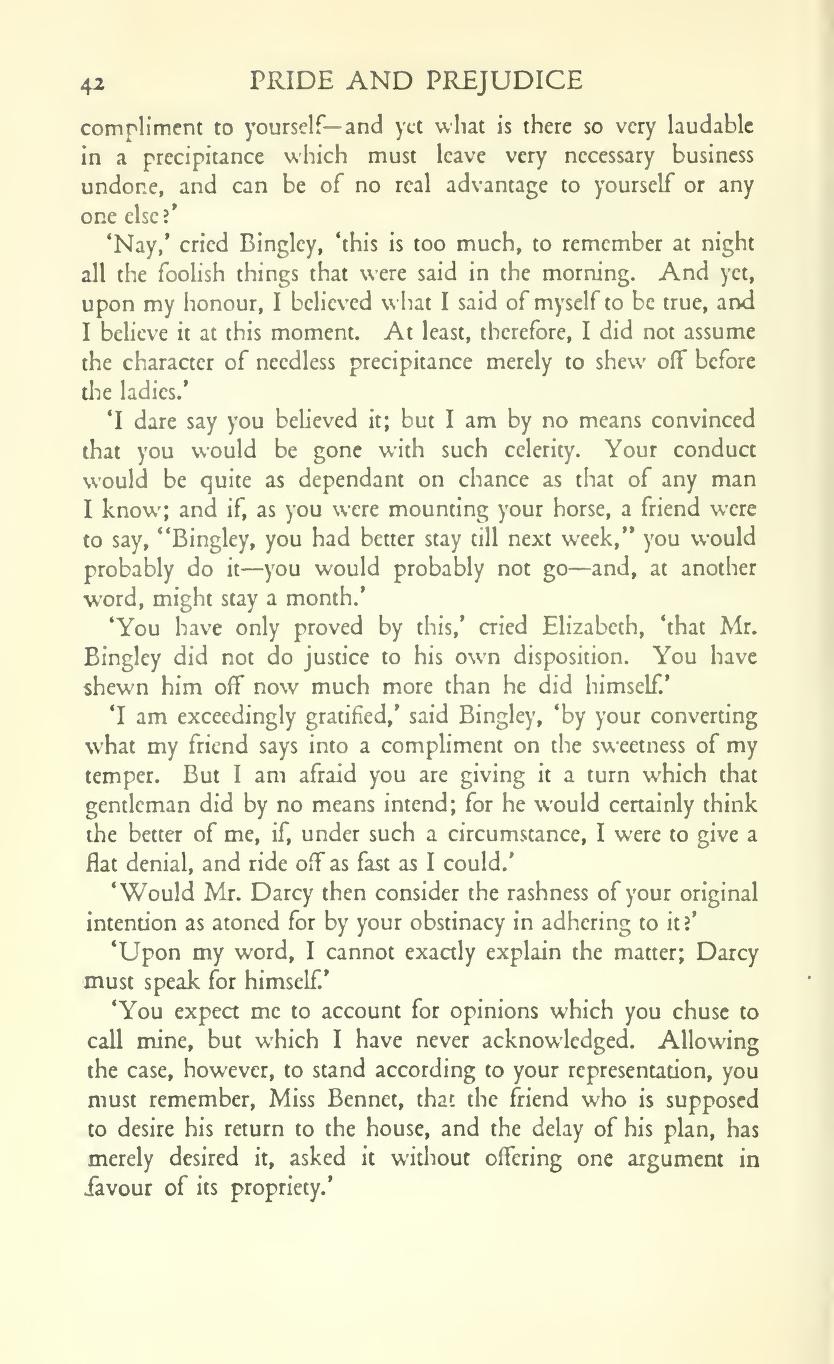 ............prev.....................next
............prev.....................next{{prxprp042.jpg}} || 42 PRIDE AND PREJUDICE ||
compliment to yourself -- and yet what is there so very laudable
in a precipitance which must leave very necessary business
undone, and can be of no real advantage to yourself or any
one else?'
'Nay,' cried Bingley, 'this is too much, to remember at night
all the foolish things that were said in the morning. And yet,
upon my honour, I believed what I said of myself to be true, and
I believe it at this moment. At least, therefore, I did not assume
the character of needless precipitance merely to shew off before
the ladies.'
'I dare say you believed it; but I am by no means convinced
that you would be gone with such celerity. Your conduct
would be quite as dependant on chance as that of any man
I know; and if, as you were mounting your horse, a friend were
to say, "Bingley, you had better stay till next week," you would
probably do it -- you would probably not go -- and, at another
word, might stay a month.'
'You have only proved by this,' cried Elizabeth, 'that Mr.
Bingley did not do justice to his own disposition. You have
shewn him off now much more than he did himself.'
'I am exceedingly gratified,' said Bingley, 'by your converting
what my friend says into a compliment on the sweetness of my
temper. But I am afraid you are giving it a turn which that
gentleman did by no means intend; for he would certainly think
the better of me, if, under such a circumstance, I were to give a
flat denial, and ride off as fast as I could.'
'Would Mr. Darcy then consider the rashness of your original
intention as atoned for by your obstinacy in adhering to it;'
'Upon my word, I cannot exactly explain the matter; Darcy
must speak for himself.'
'You expect me to account for opinions which you chuse to
call mine, but which I have never acknowledged. Allowing
the case, however, to stand according to your representation, you
must remember, Miss Bennet, that the friend who is supposed
to desire his return to the house, and the delay of his plan, has
merely desired it, asked it widiout offering one argument in
favour of its propriety.'
[[042]]